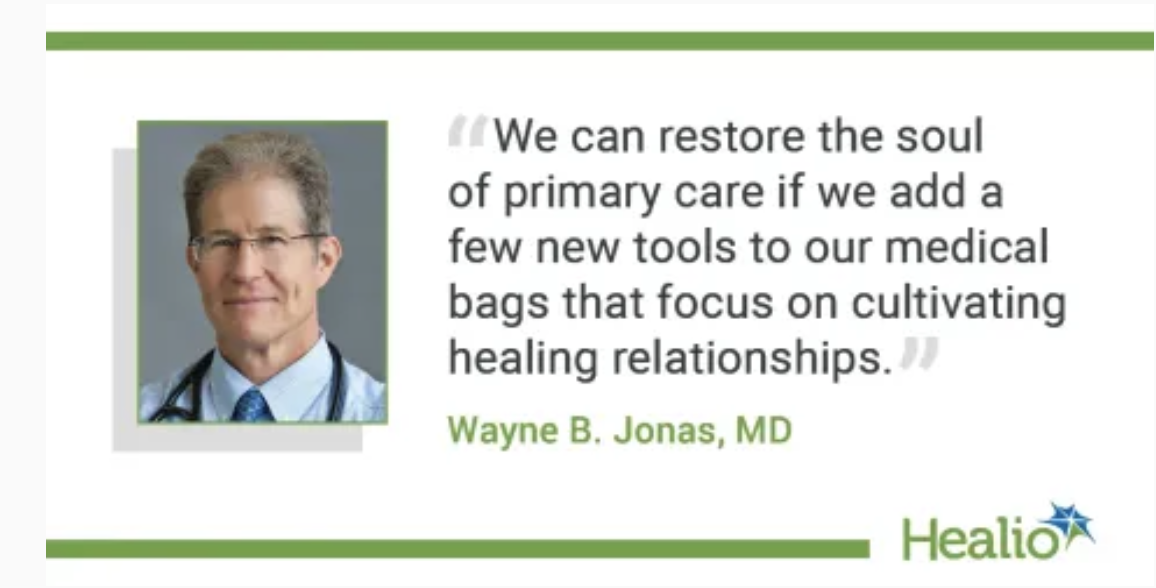

I direct you to this article called Saving the soul of primary care written by Wayne B. Jonas, MD. It is very nice and uplifting but unrealistic for most doctors. Here is what he says:
We have lost the ability and the time to create meaningful relationships with our patients in a way that facilitates their healing. We can treat their diseases, but we are not able to relieve their suffering. We are no longer able to take care of them as whole people.
We are fed flashy new tools in the form of countless new drugs, new procedures and new technologies. But we have paid for these with the loss of the person-to-person contact and satisfaction that motivated us to become doctors in the first place. As a profession, we need to find our way back to seeing ourselves not as practitioners but as healers. We need to save the soul of medicine, and in the process, rejuvenate our own spirit.
I couldn’t agree more. So, what’s the answer according to Dr. Jonas?
The key tool that I added to my medical bag for these visits is called the HOPE note (Healing-Oriented Practices and Environment), which supplements the SOAP note that we all learned in medical school. The conventional SOAP approach aims at identifying “what’s the matter” with a patient, leading to a medical diagnosis and treatment. HOPE is more valuable for getting to the root of healing because it asks the critical question of “what matters” to the patient. It helps identify what the patient really wants and needs and what would motivate them to achieve good health. It seeks engagement in their own healing.
I like this and I can see where it may really be applicable. But can that work in the system? No, f’ing way. Dr. Jonas works for the VA. The industrialized model doesn’t allow for HOPE. Why? There isn’t enough time in the visit. But this would work for DIRECT PRIMARY CARE! If only Dr. Jonas could see clearly that he is pontificating to the wrong crowd. Maybe someone reading this can send this to him or one of his brothers so that he may discover what true HOPE is: Direct Primary Care.
Time is the Strategy and its the one thing Medicine is trying to ignore and addresses everything but the crux of the issue bc it messes with the Payment Model.